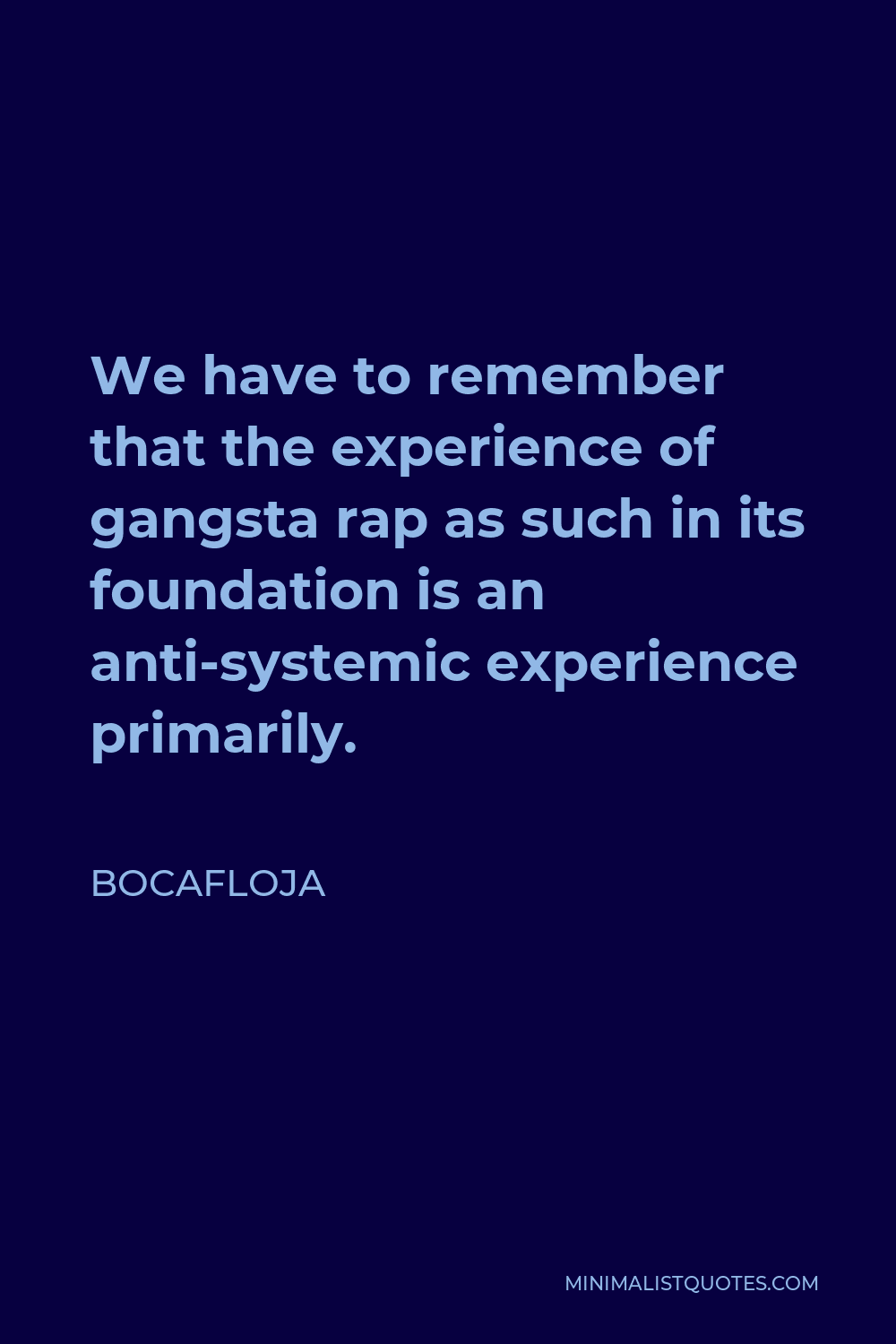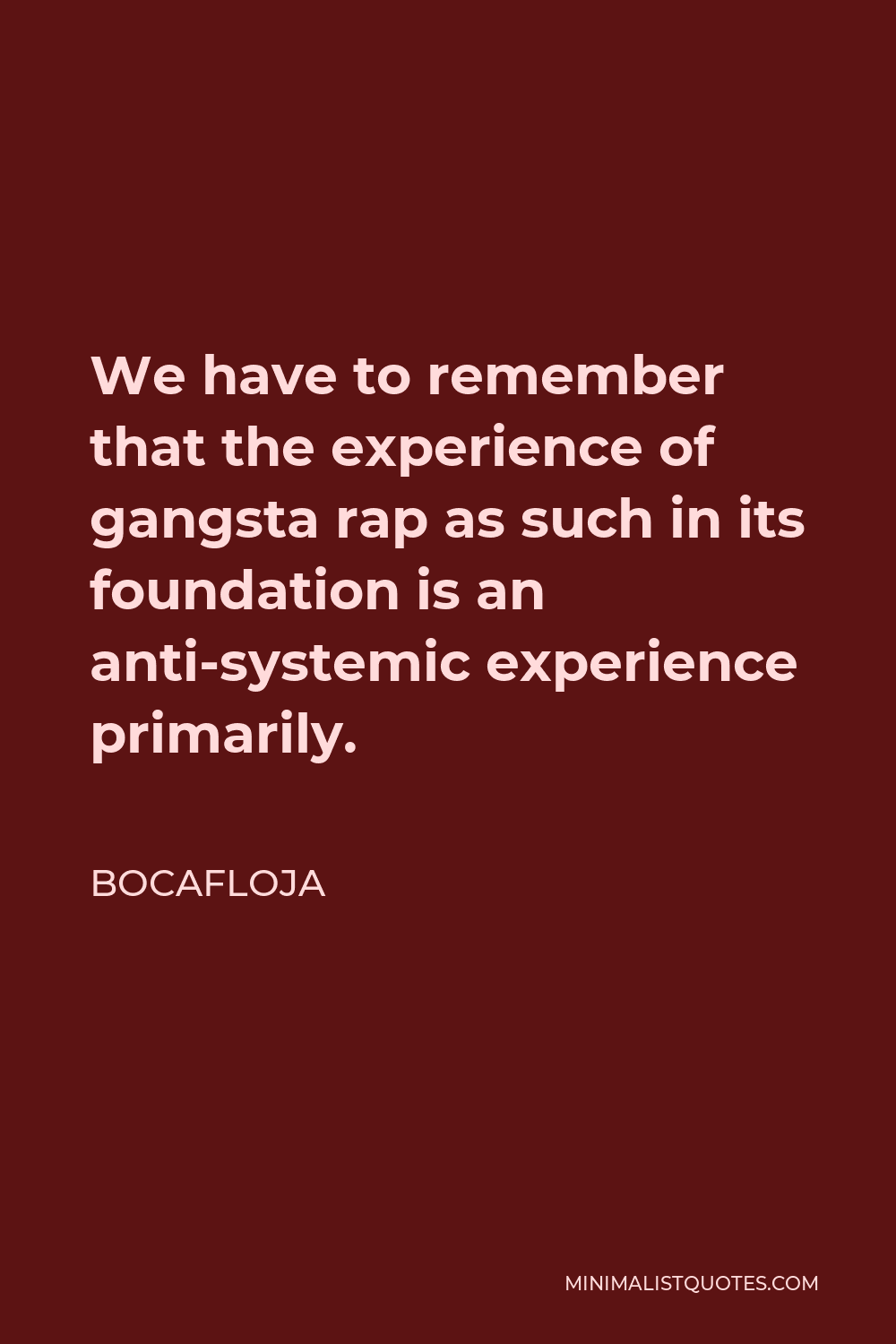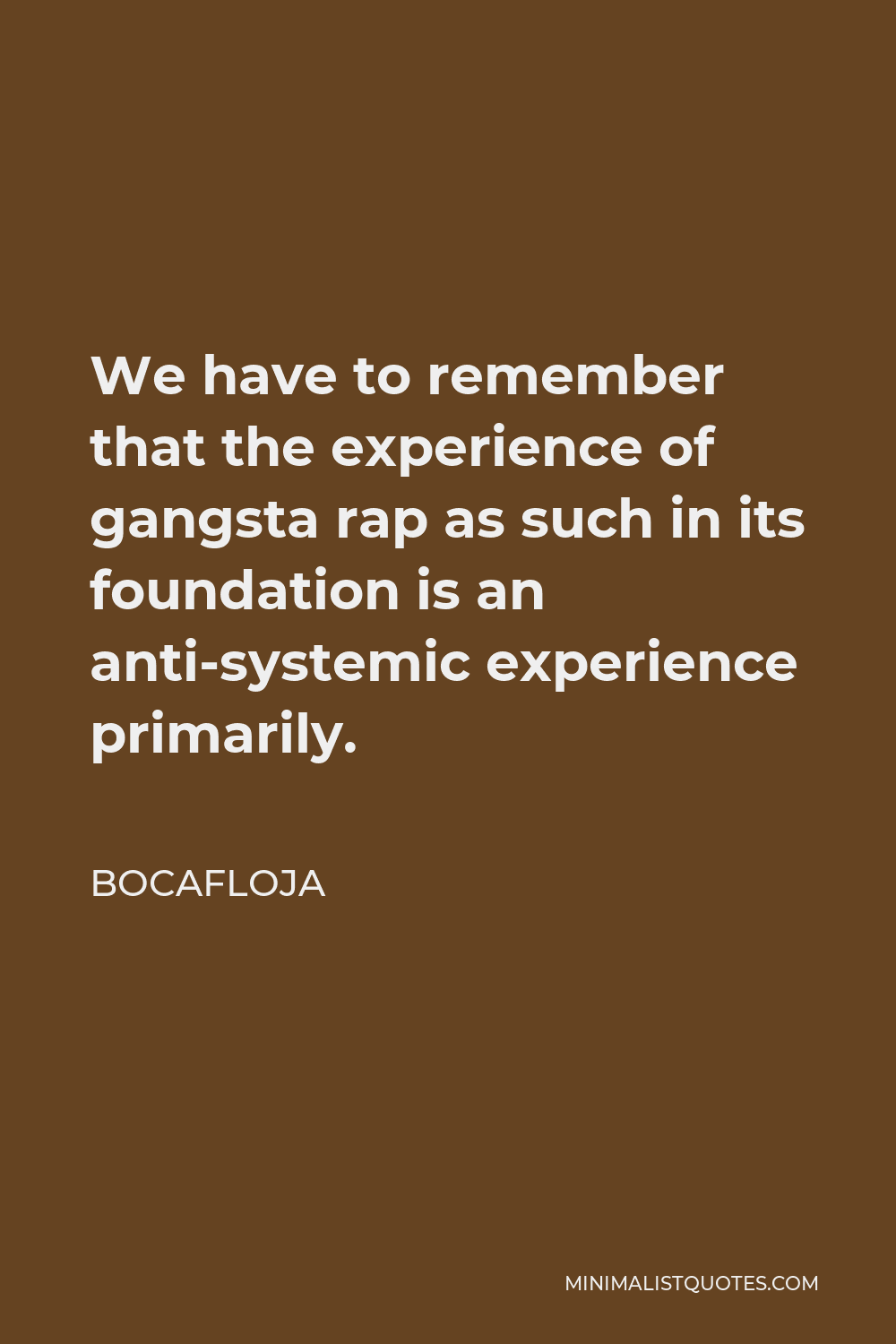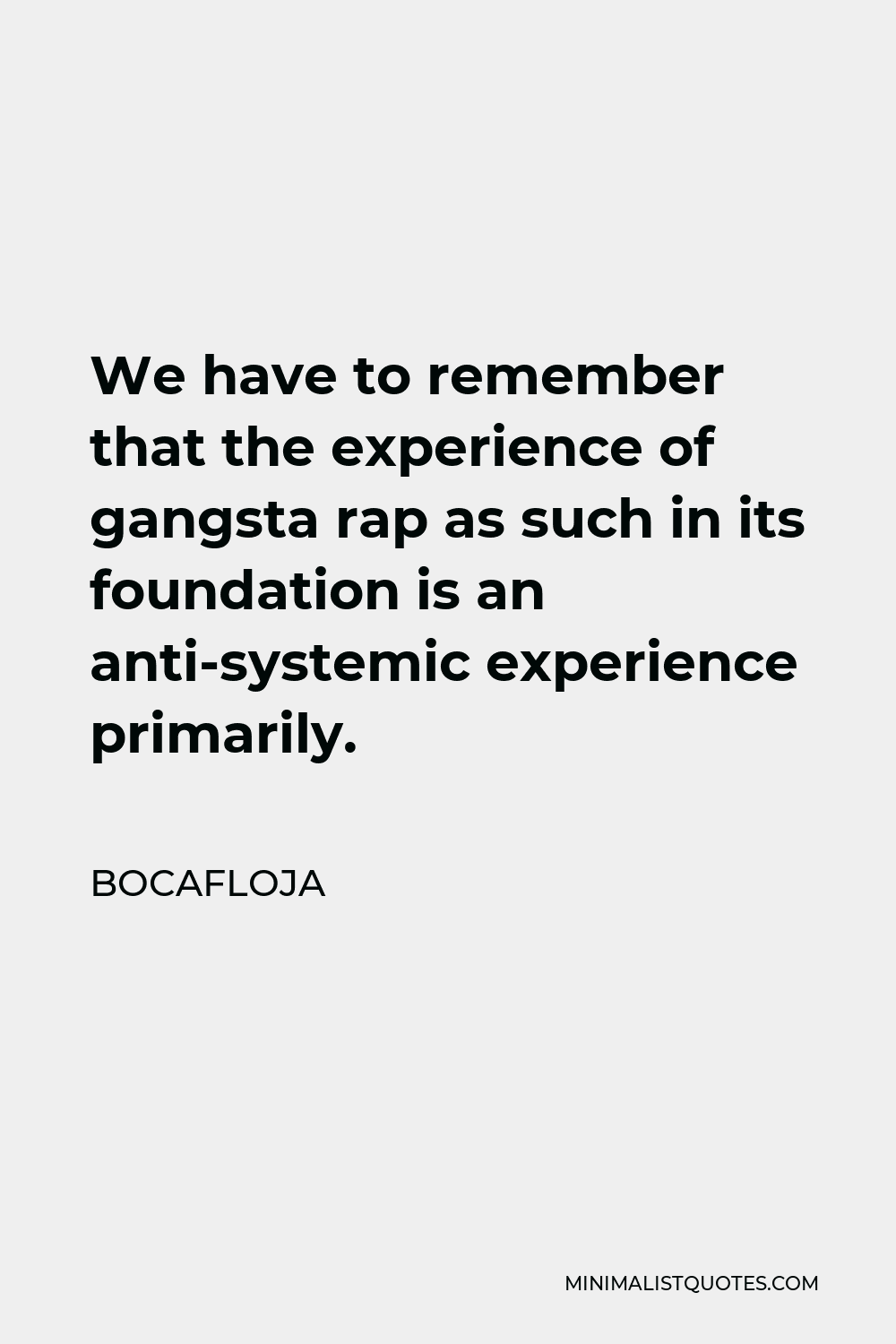European militants recognize Mumia Abu-Jamal, and the Mexican militants followed their example and legitimated his work because the Europeans said, “Hey, Mumia Abu-Jamal is relevant in the US.
BOCAFLOJAWe have to remember that the experience of gangsta rap as such in its foundation is an anti-systemic experience primarily.
More Bocafloja Quotes
-





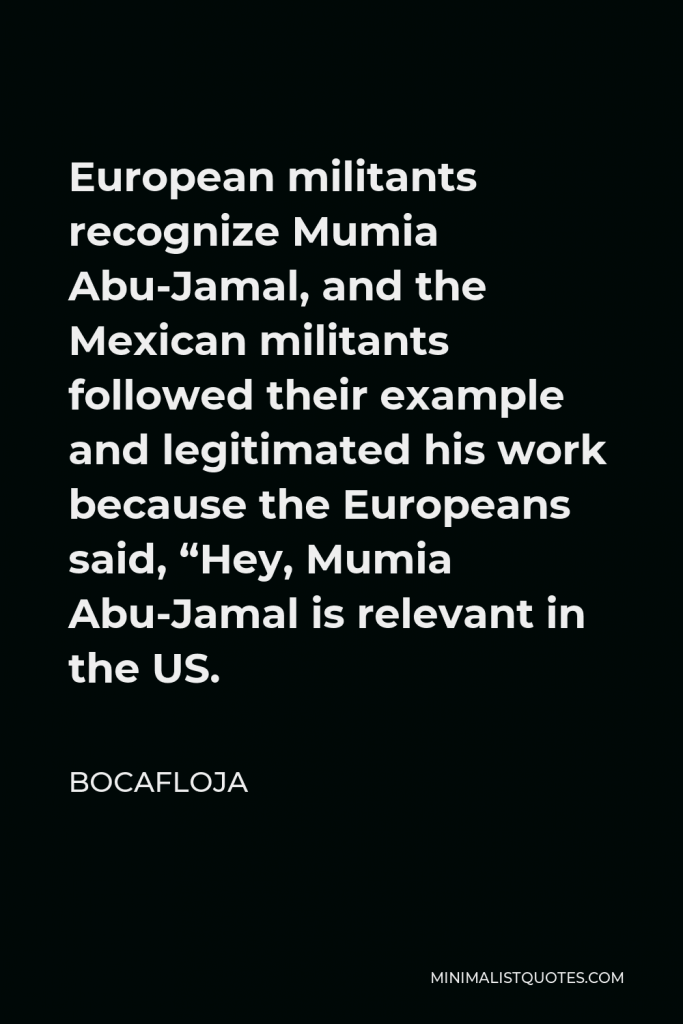

-





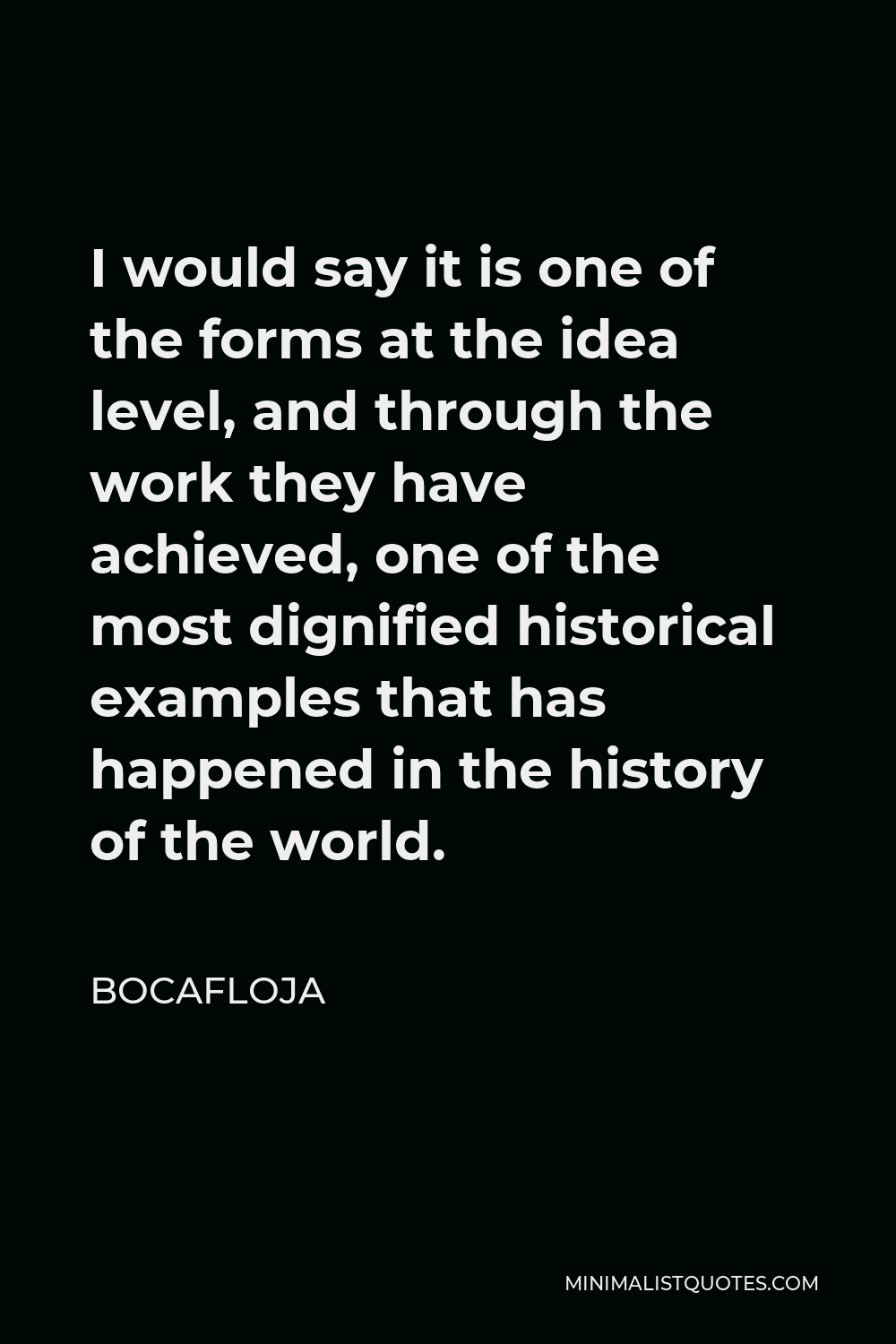
I would say it is one of the forms at the idea level, and through the work they have achieved, one of the most dignified historical examples that has happened in the history of the world.
BOCAFLOJA -





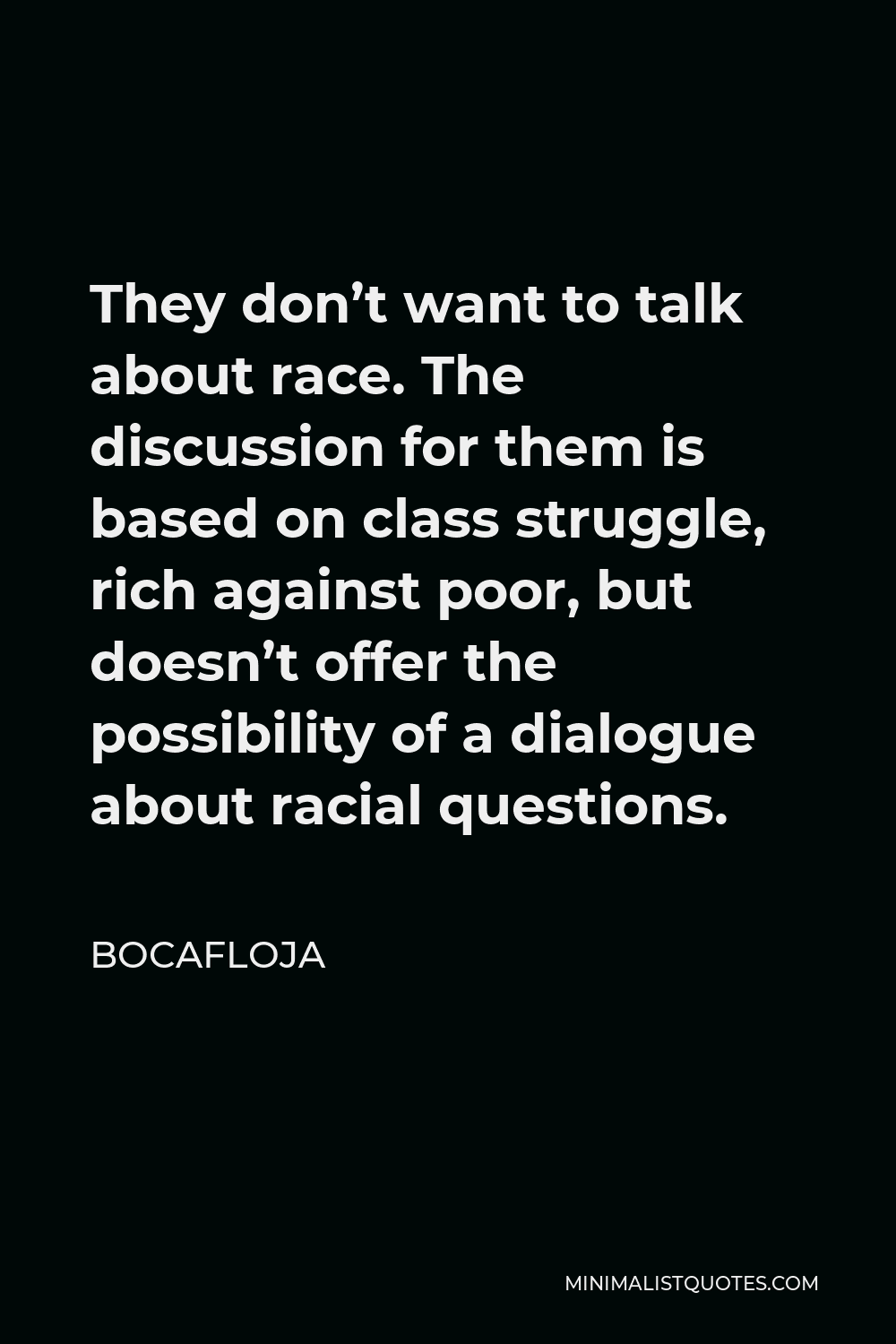
They don’t want to talk about race. The discussion for them is based on class struggle, rich against poor, but doesn’t offer the possibility of a dialogue about racial questions.
BOCAFLOJA -





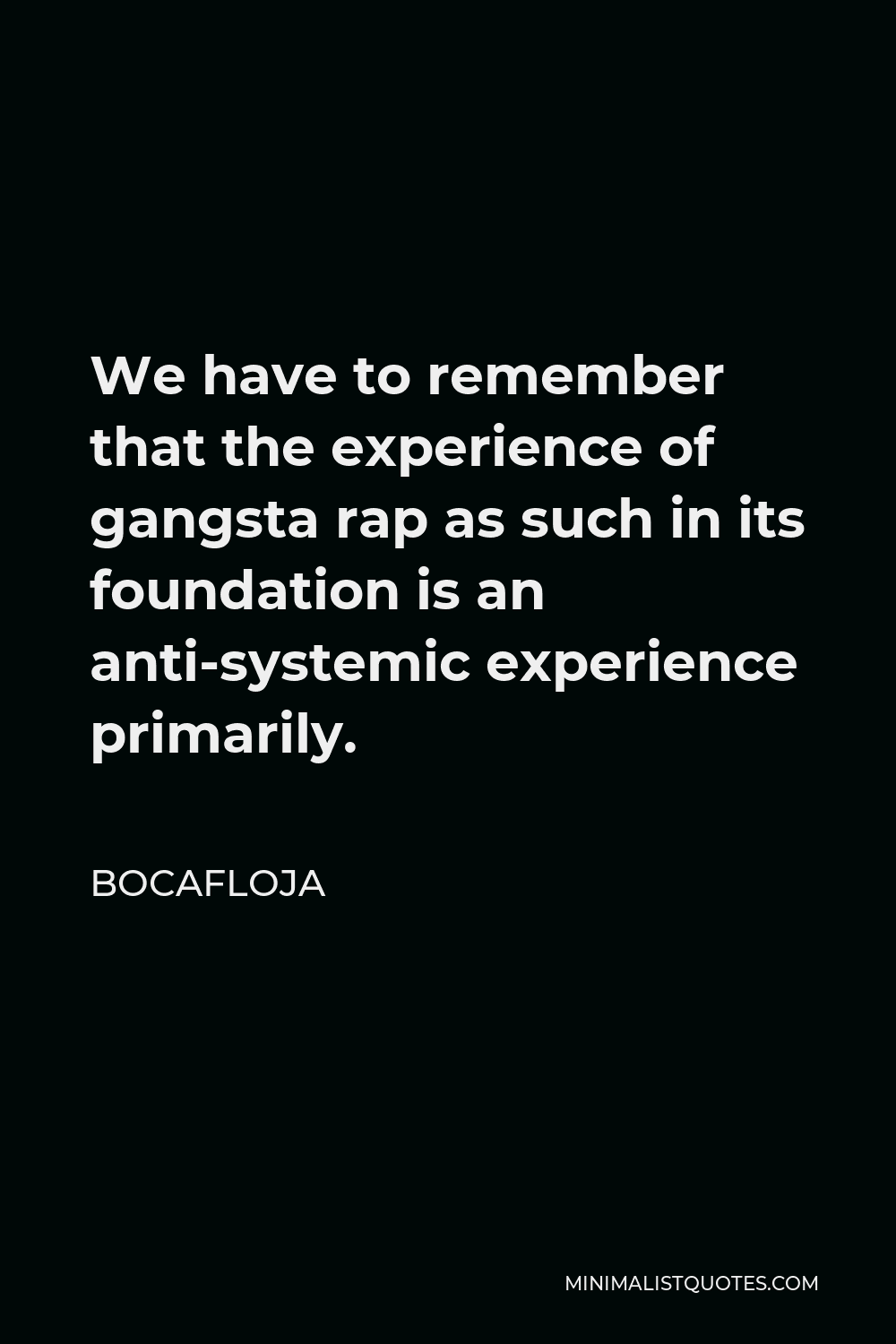
We have to remember that the experience of gangsta rap as such in its foundation is an anti-systemic experience primarily.
BOCAFLOJA -





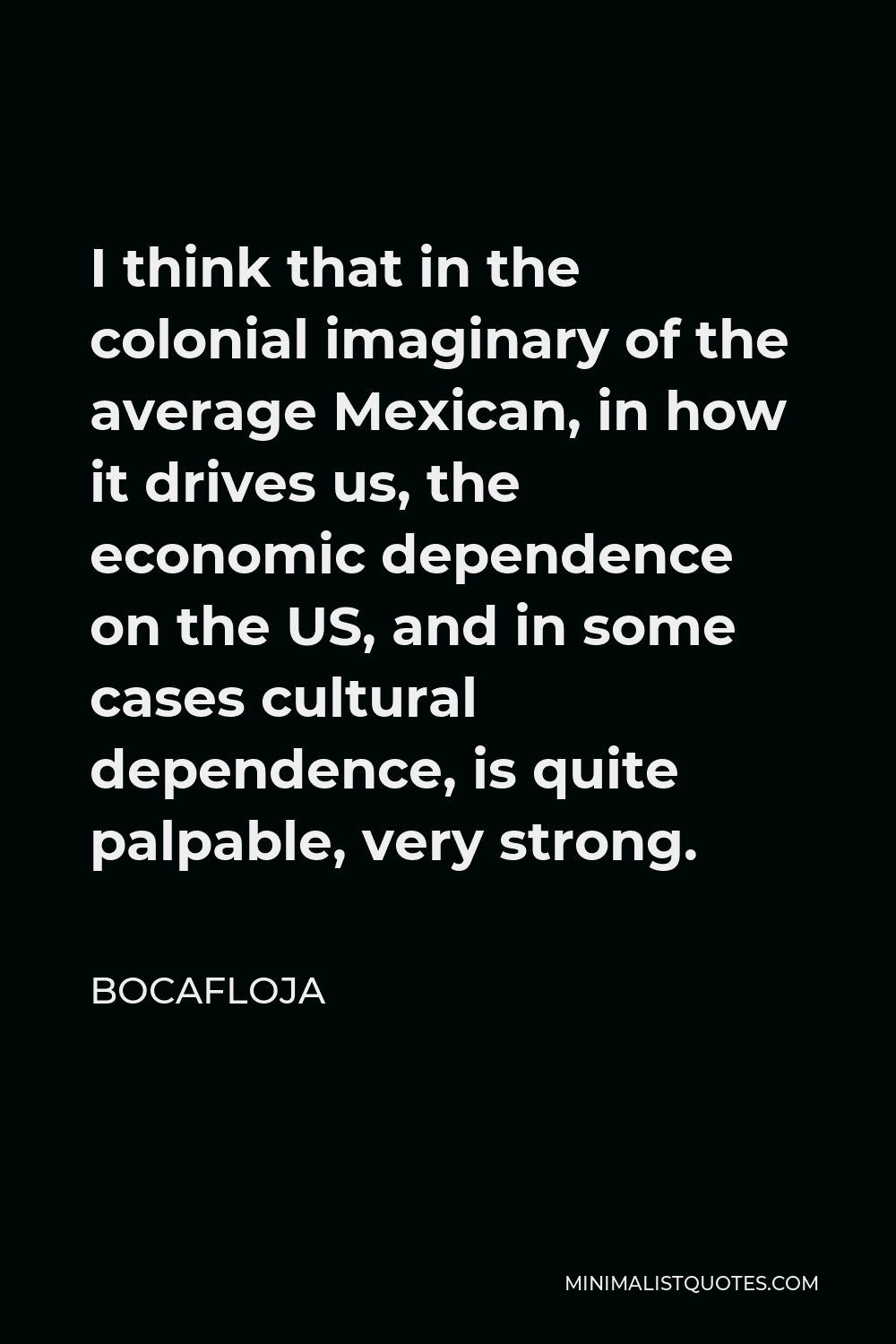
I think that in the colonial imaginary of the average Mexican, in how it drives us, the economic dependence on the US, and in some cases cultural dependence, is quite palpable, very strong.
BOCAFLOJA -





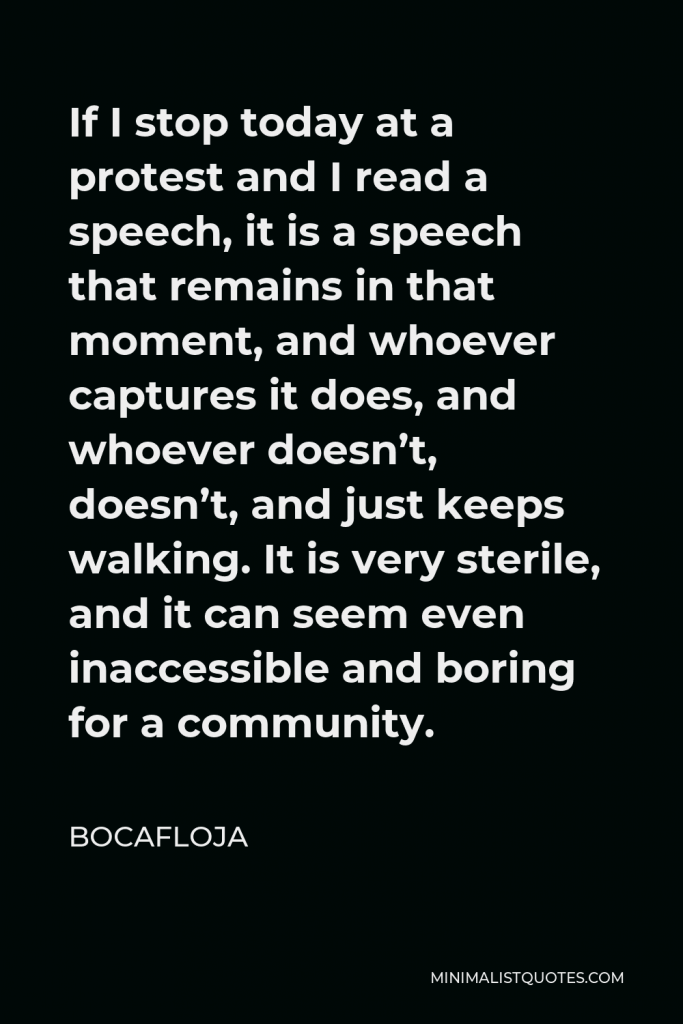

If I stop today at a protest and I read a speech, it is a speech that remains in that moment, and whoever captures it does, and whoever doesn’t, doesn’t, and just keeps walking. It is very sterile, and it can seem even inaccessible and boring for a community.
BOCAFLOJA -





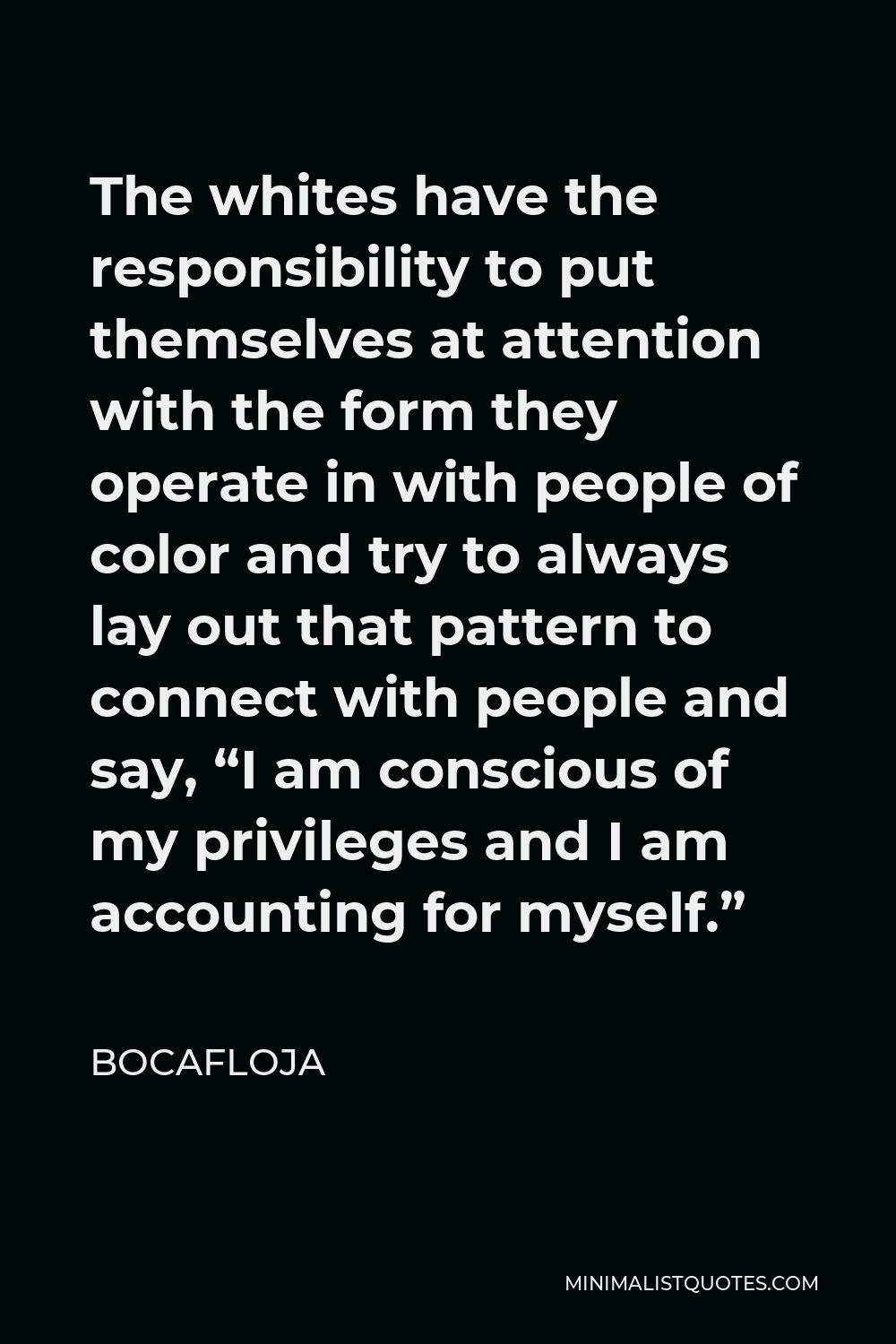
The whites have the responsibility to put themselves at attention with the form they operate in with people of color and try to always lay out that pattern to connect with people and say, “I am conscious of my privileges and I am accounting for myself.”
BOCAFLOJA -





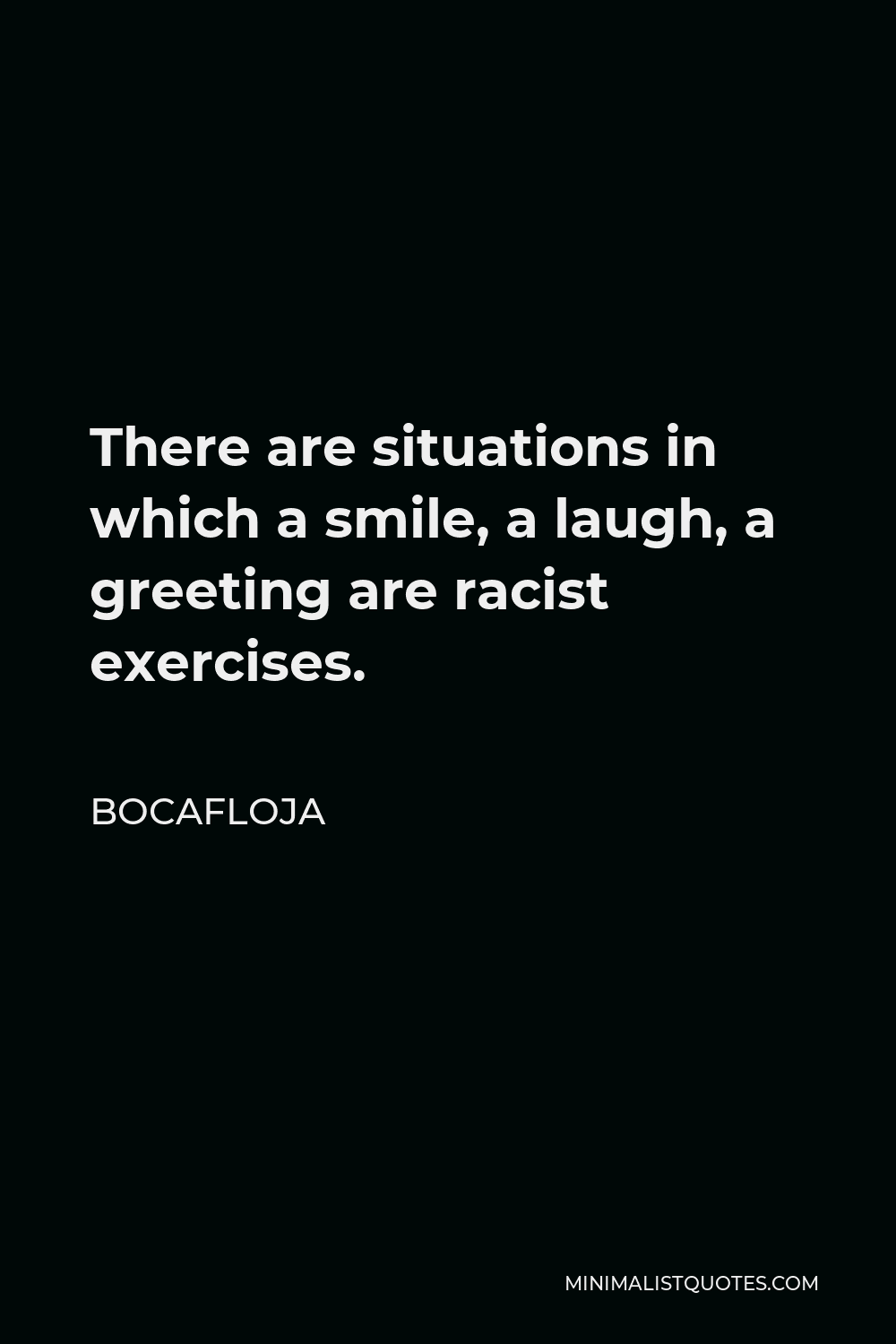
There are situations in which a smile, a laugh, a greeting are racist exercises.
BOCAFLOJA -





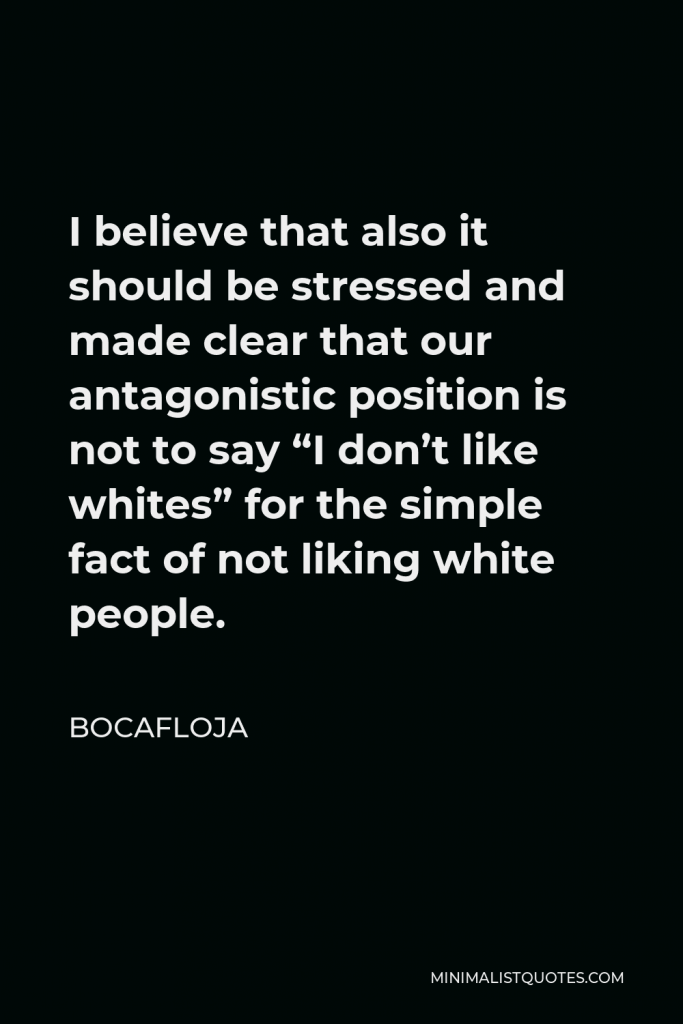

I believe that also it should be stressed and made clear that our antagonistic position is not to say “I don’t like whites” for the simple fact of not liking white people.
BOCAFLOJA -





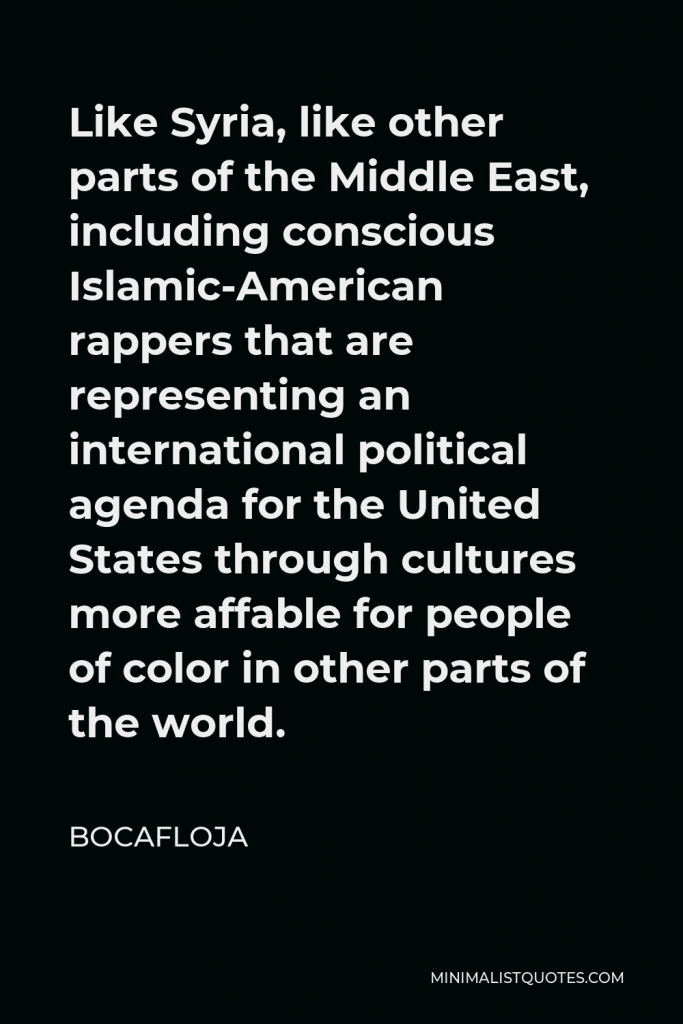

Like Syria, like other parts of the Middle East, including conscious Islamic-American rappers that are representing an international political agenda for the United States through cultures more affable for people of color in other parts of the world.
BOCAFLOJA -





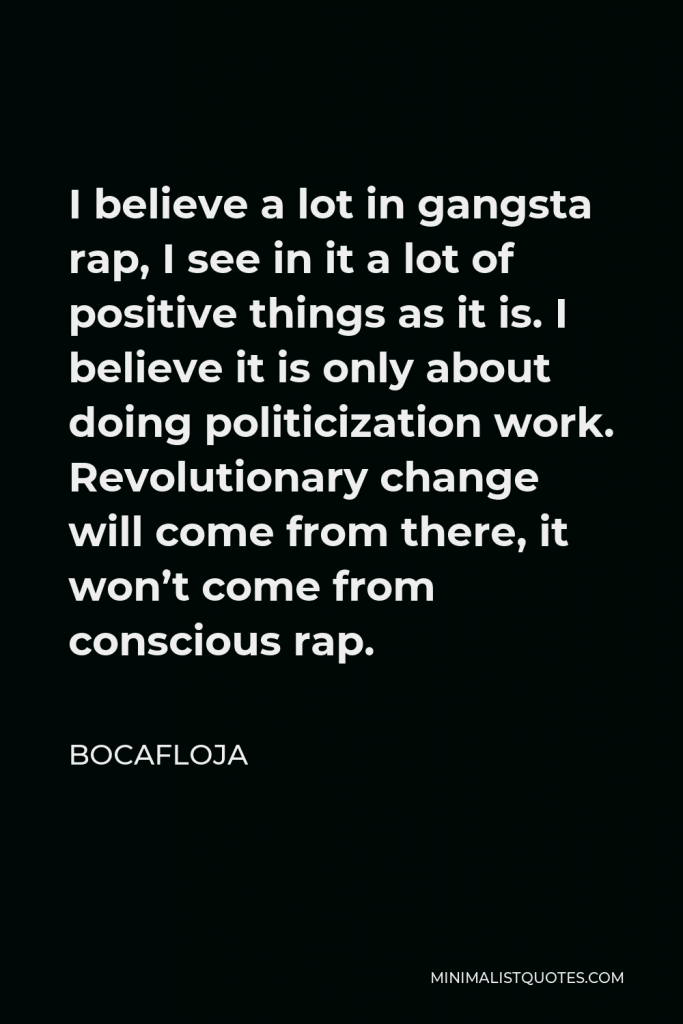

I believe a lot in gangsta rap, I see in it a lot of positive things as it is. I believe it is only about doing politicization work. Revolutionary change will come from there, it won’t come from conscious rap.
BOCAFLOJA -





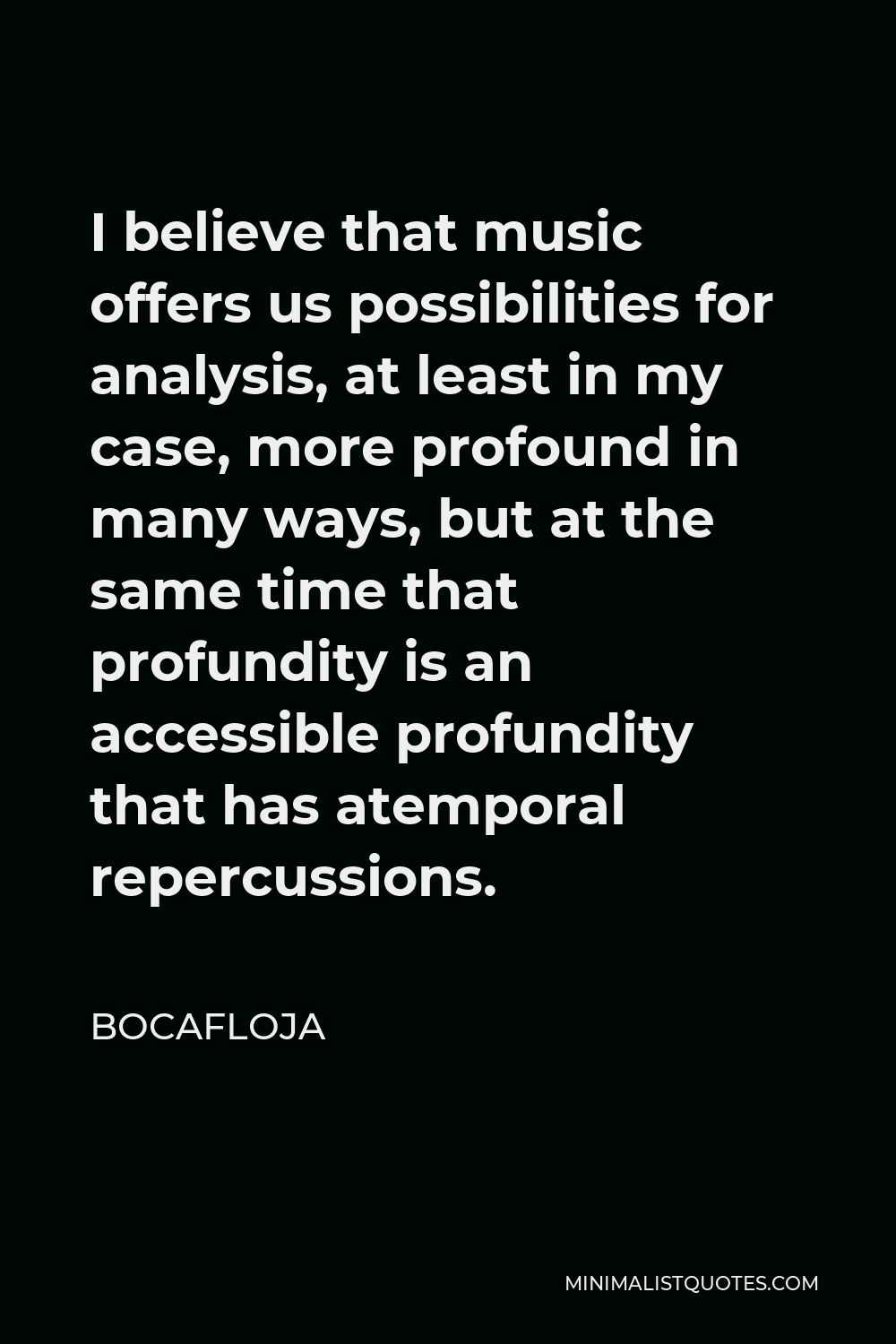
I believe that music offers us possibilities for analysis, at least in my case, more profound in many ways, but at the same time that profundity is an accessible profundity that has atemporal repercussions.
BOCAFLOJA -





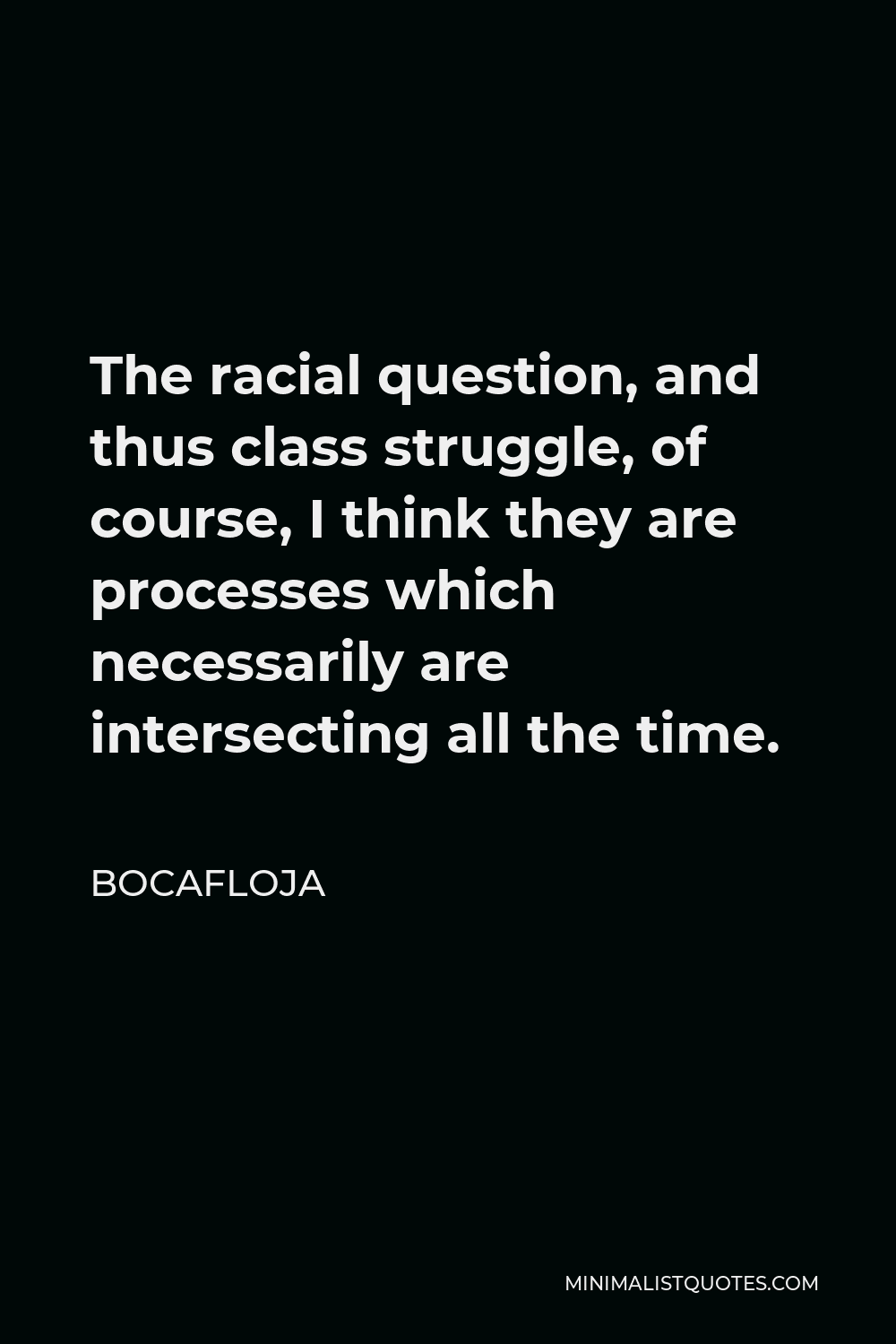
The racial question, and thus class struggle, of course, I think they are processes which necessarily are intersecting all the time.
BOCAFLOJA -





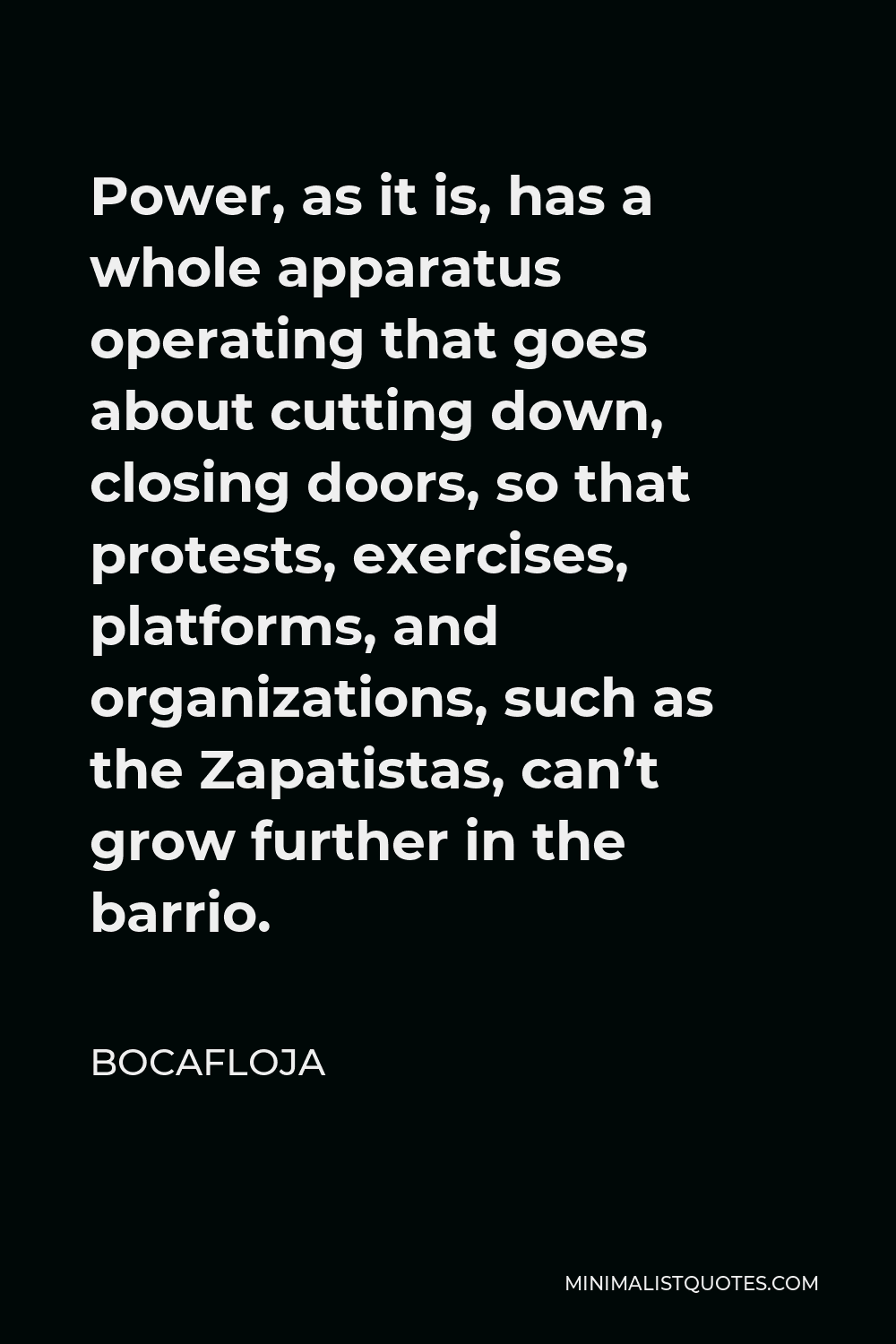
Power, as it is, has a whole apparatus operating that goes about cutting down, closing doors, so that protests, exercises, platforms, and organizations, such as the Zapatistas, can’t grow further in the barrio.
BOCAFLOJA -





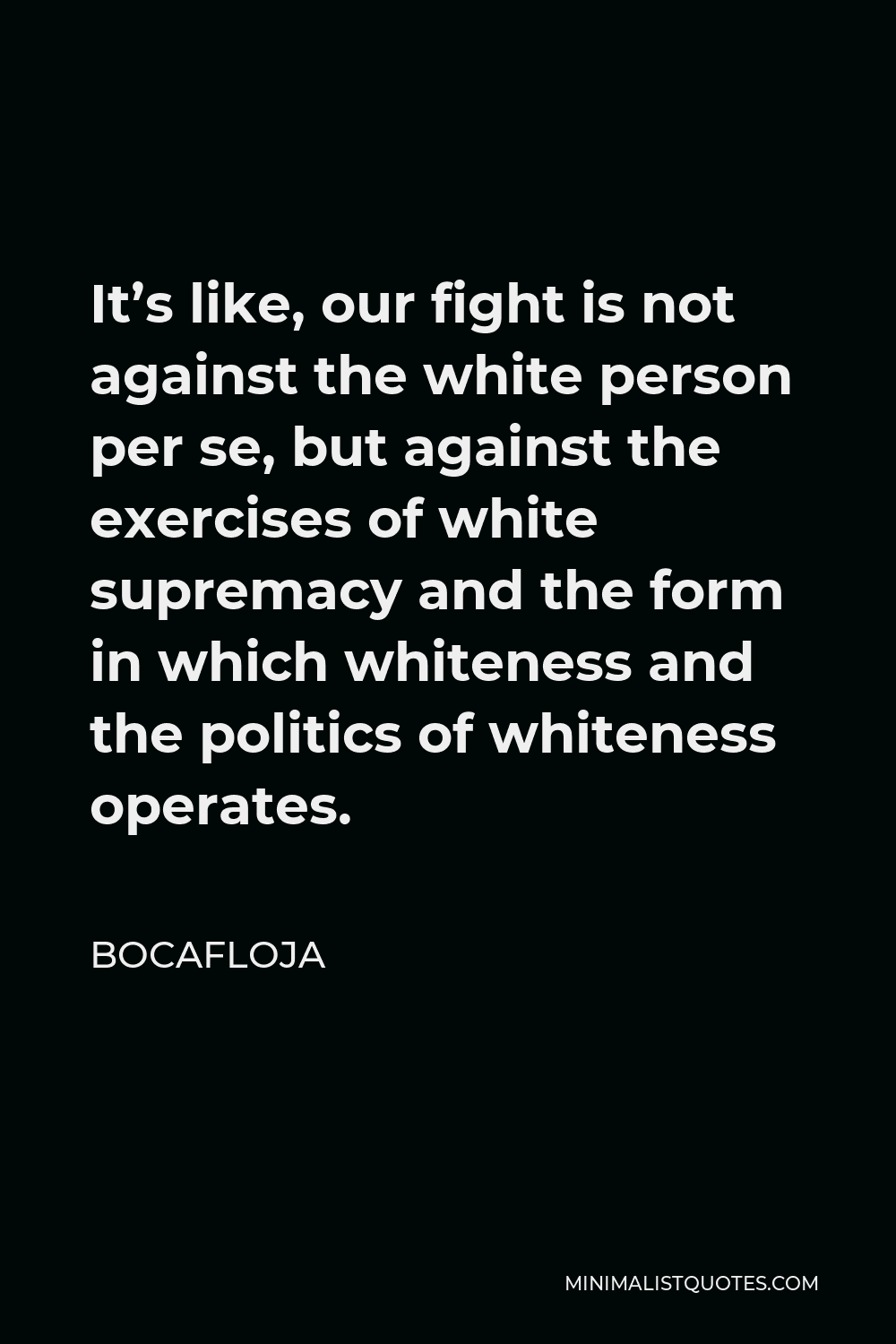
It’s like, our fight is not against the white person per se, but against the exercises of white supremacy and the form in which whiteness and the politics of whiteness operates.
BOCAFLOJA -





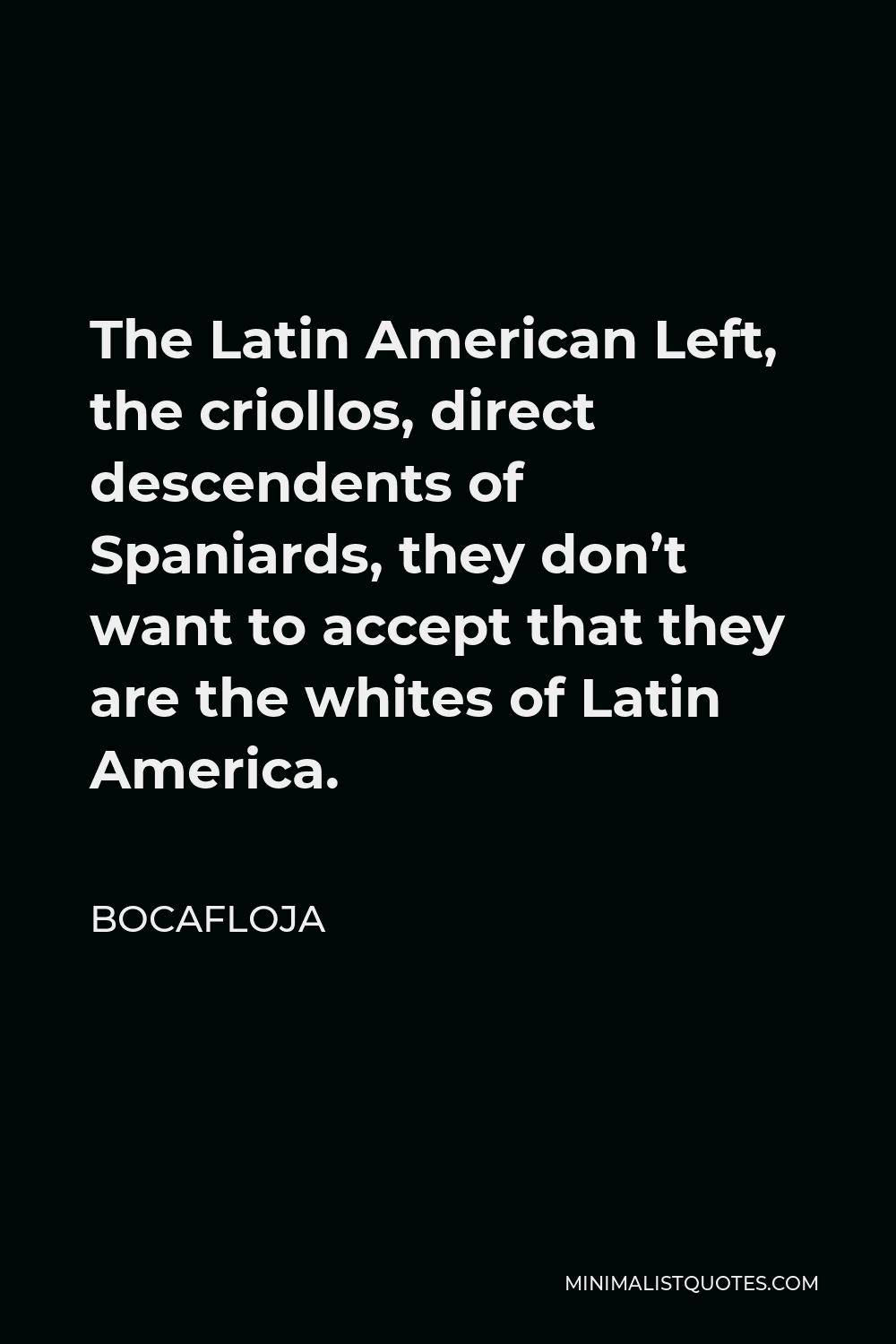
The Latin American Left, the criollos, direct descendents of Spaniards, they don’t want to accept that they are the whites of Latin America.
BOCAFLOJA

